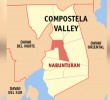I will not tell you about the ordeal we suffered a couple of weeks ago on our way back to Davao City from General Santos. I will not narrate the timeline of events, from one city to the next, from one province to the next. I will not recount the details of the chase, of the one, two, three, five anonymous men on motorcycles that hounded us on streets wide and narrow. I will not talk about the emotional ups and downs of being the prey in a hunt, of the elation of thinking that we were free, and the collapse at the realization that we were not.
I will not dwell upon the blood-draining anxiety of those moments as thoughts of my friends Karen Empeno and Sherlyn Cadapan and Kim Gargar that entered my head , how they were all taken, imprisoned, and disappeared for being with the marginalized, for doing what so many others cannot or will not do: to live simple lives of service and struggle to create a better and more just society.
I will not tell you about the ordeal we suffered, but I will tell you about how that did not stop me.
It did not stop me from plunging right back into the Abolish the Pork Barrel campaign. The episode had already caused me to miss one speaking engagement that week, and there was no time to lose with Noynoy Aquino’s pronouncement that he was going to explain the DAP to the nation in a live address.
On that day I and other members of the Abolish Pork Movement and other progressive groups all gathered to watch, not in some friend’s home or someplace else ensconced, but out on the streets of Davao to greet Aquino’s pronouncements with a protest-noise barrage.
As what many of us expected, Aquino defended the DAP to death, with no sign of remorse for the highly questionable and indeed unconstitutional way by which he and his minions manipulated funds, not a bit of sympathy for the many citizens who are now confused, angry, hungry for answers and accountability – his very own “bosses” whom he has clearly betrayed with his shenanigans and afterthought justifications.
But what we didn’t expect was the arrogant words in his conclusion: a brazen challenge to the Supreme Court, outrightly telling them that their decision was wrong and that if it was not corrected according to his wishes, then a crisis of the three branches of government could – and would – ensue. I will leave to them to slug it out; they have their own rules (which they see fit to break any time they find it to their advantage). But I will say this: if this man we call president, who has all the power and resources of his position behind him, shows no compunction in provoking and threatening a co-equal government entity, then be certain that he will show even less towards the smaller people, especially those who question him and stand in his way.
Another: this incident did not stop me from continuing to expose that these specific issues, like the DAP and PDAF, are mere symptoms of bigger problems that have no simple solutions.
At a talk with local leaders in one of Davao’s larger but less well-to-do barangays, we had what for me was an enlightening discussion about how ordinary folk look at corruption, its origins, and how, if we can at all, stop it. Some were quite ambivalent about the entire pork barrel issue, willing to concede some good to the PDAF and the DAP that had provided their children with scholarships, or given them referrals in hospitals when a loved one got sick. Others also said that reform should start small – in their barangays and puroks, and especially their homes, where their children start learning either good or bad values. That changing one’s self from within is sufficient contribution to changing society as a whole.
There is nothing disagreeable with these sentiments, but I noticed little emphasis on the crucial role of structures that brought about, and maintain, the oppressive and repressive circumstances of society.
My initial thought during this interaction was to try to understand the context in which these attitudes were formed. Telling people that there are problems is the easy part – everybody knows this. But the hard part is examining the nature of these problems, how they connect to everything else, and facing the immensity of the task at hand. The belief in starting small, following the rules, working hard and then the rest will come makes sense from their standpoint as local leaders and heads of families. We also should not discount the prevalence of this in the zeitgeist – this is what is being taught in schools, in church, in telenovelas.
From this came the realization that serious activists have much more work to be done, for the campaigns – indeed, the revolution – that we are waging are not just economic and political in nature but utterly cultural, as well. The default apathy of many people is, or their spontaneous downscaling of what they can do are, like corruption, symptoms of a deeper malaise that needs to immediately be addressed. I know that more thought needs to go into this, which is why I am not letting what happened stop me.
Something similar happened from the community back to the University, when I gave a talk to student journalists and editors from around Davao in a recent College Editors Guild of the Philippines workshop. My presentation was initially only about, again, the DAP, but the open forum inevitably veered into student and education issues. The students I was facing were the lucky ones, in the sense that their schools had functioning papers and with active staff who honed their skills through trainings like this one. But nevertheless, there are problems to be faced, many of which were strikingly similar: high tuition payments, poor facilities, lack of transparency as to where the money actually goes, school administrations that nip the principled inquiry of student journalists in the bud through circuitous bureaucracy or making use of the power relations between teachers and students. Come to think of it, not only were their local situations similar with each other, but aren’t these similar to recent DAP-related events? Of paying the authorities the amount they require of you, yet feeling like you have not received your due? Of being unable to validate these worries for transactions are not transparent and officials are not accountable?
The trepidation that many of us can’t help but feel when confronting people in authority was apparent in some of the students.
There were bouts of uncertainty and lip-biting among the students as we talked about how they can perform their duties as both journalists and students at the same time, an apprehension that many can’t help but feel about the idea of confronting people in authority. But what these kids had was a youthful vigor that eventually won the day. They are yet to be jaded, and they could as yet still utter their organization’s rallying call of “To write is to choose” with no sense of irony whatsoever. This was a hopeful scene, enough to keep me buoyed despite the hard work, difficult people and places, and yes, the harassment and intimidation. How can one stop now with this?
And there are so many other reasons to continue. Aquino’s dictatorial bent is becoming more apparent as the days go by, from his challenging the Supreme Court to possibly accepting emergency powers because of a supposed energy crisis. International news is replete with reports of Israel’s merciless attacks on the Palestinians, what is essentially a conflict about rights to a homeland and a heritage, a conflict that is played out here in our own country every day with displaced indigenous peoples and landless peasants. Classes are about to begin in UP in a couple of weeks; for each student who enters, how many more won’t, not because they didn’t pass the UPCAT but because they never had a chance in the first place, dropping out early because of poverty and the rising costs of education in the country? Many, many other reasons.
So, I will not tell you about the ordeal we suffered, but I will tell you about how that did not stop me, and how that will never stop me.










